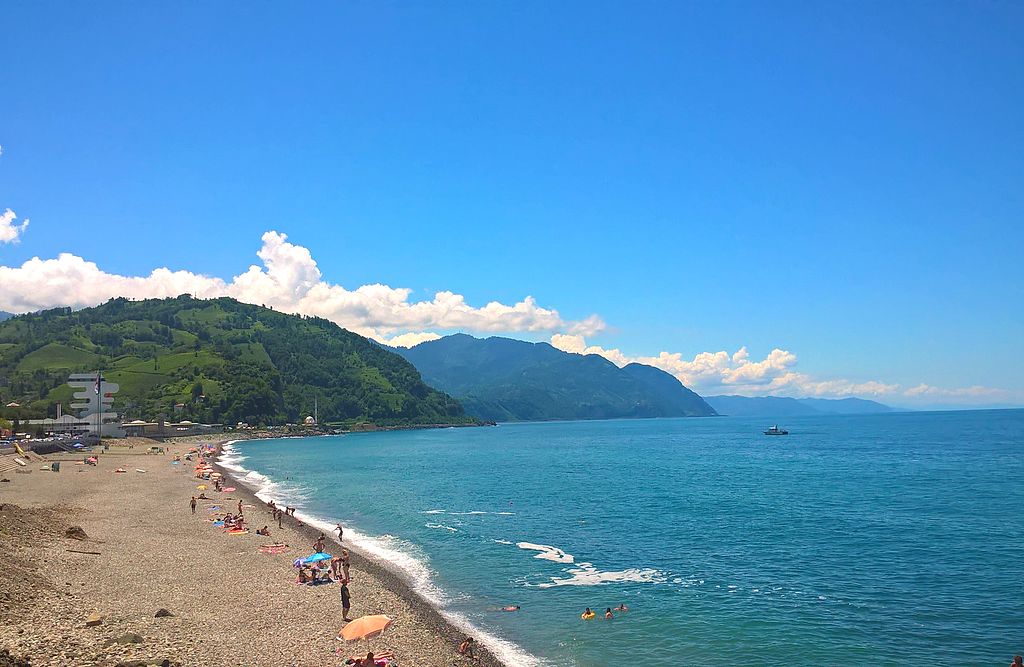read also
Israeli Capital Flows into Georgia: A Boom in Hotel Investments

The Israel-Iran conflict of 2024–2025 has triggered a significant capital flight from Israel. The war, which escalated from Hamas attacks in autumn 2023 to direct clashes between Israel and Iran in 2025, has pushed Israeli investors to seek safer havens abroad. In Q1 2024 alone, Israelis invested a record $3.6 billion in foreign assets — 49% more than the previous year. For the first time in a decade, capital outflows from Israel surpassed inflows. Meanwhile, foreign direct investment in Israel plummeted by 63% year-on-year at the start of 2024.
Financial firms report a surge in Israelis transferring savings abroad. Fintech company GMT recorded a 50% increase in requests to move funds out of Israel by March 2025, driven by economic uncertainties and domestic political risks. Despite a temporary rebound in the shekel and stock indices after hopes for a ceasefire, geopolitical uncertainty remains high. S&P and other rating agencies warn of risks to Israel’s economy if the conflict drags on. Rising defense costs force the government to consider tax hikes and budget cuts, further prompting wealthy Israelis and companies to diversify their assets internationally.
Georgia as a “Neutral Haven” for Israeli Investors
Amid capital outflows, Georgia stands out as a safe, neutral destination. Following the events of October 7, 2023, Israeli interest in Georgia spiked. Experts describe Georgia as a “Caucasian Switzerland” due to its neutral foreign policy, friendly tax regime, and historically warm relations with the Jewish community, which has existed there for 26 centuries.
Elsewhere in the Middle East, anti-Israeli sentiment is rising, making traditional destinations like Turkey or the UAE less appealing. Georgia, however, offers a tolerant environment where Armenians, Azerbaijanis, Jews, Arabs, Russians, and Ukrainians coexist peacefully. For Israelis seeking a “Plan B,” Georgia’s reputation as a “neutral island of stability” is a major draw.
Georgia also offers economic benefits. Real estate is significantly cheaper than in Israel, where many families can’t afford to buy homes. Apartments in Tbilisi or Batumi cost four to five times less than in Israel and generate rental income from a booming tourism market. Georgia ranked among the top 10 tourist markets for Israelis in 2022–2023, with over 200,000 Israeli tourists annually. In 2024, this number grew by around 25%, with Israelis overtaking other nations in tourist spending in Georgia.
Boom in Georgia’s Hotel Real Estate
Seeking safety and returns, Israeli investors are pouring funds into Georgia’s real estate market, especially hotels and serviced apartments. By the end of 2024, Israelis became the #1 foreign buyers of real estate in Georgia. Previously, Russians held the top spot, but Israelis surpassed them even in Tbilisi: in the first half of 2024, Israelis accounted for 11% of all new housing purchases in the capital, up from just 4% the year before. Meanwhile, Russians’ share dropped to 2%.
In Batumi alone, Israeli buyers acquire up to 1,500 apartments annually, representing $50–70 million in private investment each year. Israeli businesses are also involved in large-scale development projects. The luxury hotel segment is booming, attracting capital from high-risk regions. Since late 2023, Israeli capital has surged into Georgia, alongside Gulf investors wary of regional instability.
Israelis are investing in niche projects too. Kass Group is financing a panoramic restaurant atop Tbilisi’s TV tower for around $11 million and previously developed a dramatic tourist complex with a suspended “diamond bridge” over Georgia’s Dashbashi Canyon. Plans include a hotel and waterpark at this scenic site. Israeli firms also support Jewish heritage tourism projects, restoring historic Jewish quarters and creating routes tied to Jewish culture. In Tbilisi, developers like Zion Group actively market housing to Israelis and offer property management services aligned with Israeli standards.
Prospects: Hotels as a Safe Haven
The 2024–2025 trend clearly shows that Georgia’s hotel sector is viewed as a relatively safe and growing investment amid global turmoil. Georgia is positioning itself as an oasis of predictability while global conflicts escalate. For Israeli investors worried about war and economic risks at home, Georgian hotel projects serve as a form of “insurance.” Hotels catering to booming tourism generate steady foreign-currency revenue at lower costs than similar assets in the Middle East or Europe.
Analysts note that Georgia’s real estate market is following Dubai’s trajectory, with premium prices already rising to $5,000–$10,000 per square meter. In 2024, real estate investment in Georgia exceeded $89 million in just three quarters, slightly surpassing last year’s level despite global upheaval.
The Georgian government further supports this growth by allowing foreigners to obtain residence permits with property purchases of $150,000 or more. Property taxes and rental income taxes remain low, and bureaucratic hurdles are minimal. Combined with Georgia’s tourism appeal—seaside resorts, ski destinations, casinos, and rich culture—this ensures sustained demand for hotel rooms and apartments. Global brands like Wyndham, Marriott, Hilton, and Radisson are expanding in Georgia, raising industry standards. From Israeli tech millionaires to Gulf funds, new capital is finding fertile ground in Georgia’s relatively untapped market.
Experts believe this outflow of Israeli capital has long-term benefits. Diversifying assets strengthens investors’ financial resilience, and investing in Georgia offers not just profit potential but strategic ties. Georgia’s reputation as a reliable partner willing to welcome Israeli business and tourism enhances bilateral economic relations. Amid global turbulence, Georgian hotel investments appear to be a promising path to preserve and grow wealth. Georgia seems poised to secure its niche as a safe haven—and Israeli investors are already enjoying the benefits of this refuge.








